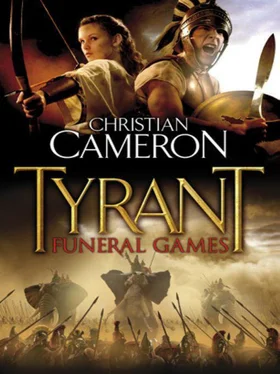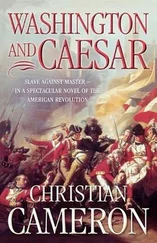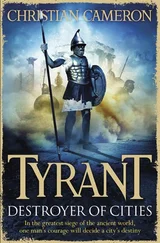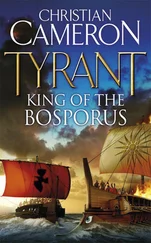Christian Cameron - Funeral Games
Здесь есть возможность читать онлайн «Christian Cameron - Funeral Games» весь текст электронной книги совершенно бесплатно (целиком полную версию без сокращений). В некоторых случаях можно слушать аудио, скачать через торрент в формате fb2 и присутствует краткое содержание. Жанр: Исторические приключения, на английском языке. Описание произведения, (предисловие) а так же отзывы посетителей доступны на портале библиотеки ЛибКат.
- Название:Funeral Games
- Автор:
- Жанр:
- Год:неизвестен
- ISBN:нет данных
- Рейтинг книги:5 / 5. Голосов: 1
-
Избранное:Добавить в избранное
- Отзывы:
-
Ваша оценка:
- 100
- 1
- 2
- 3
- 4
- 5
Funeral Games: краткое содержание, описание и аннотация
Предлагаем к чтению аннотацию, описание, краткое содержание или предисловие (зависит от того, что написал сам автор книги «Funeral Games»). Если вы не нашли необходимую информацию о книге — напишите в комментариях, мы постараемся отыскать её.
Funeral Games — читать онлайн бесплатно полную книгу (весь текст) целиком
Ниже представлен текст книги, разбитый по страницам. Система сохранения места последней прочитанной страницы, позволяет с удобством читать онлайн бесплатно книгу «Funeral Games», без необходимости каждый раз заново искать на чём Вы остановились. Поставьте закладку, и сможете в любой момент перейти на страницу, на которой закончили чтение.
Интервал:
Закладка:
Satyrus grinned, despite his nerves.
The hoof beats were getting closer.
‘Ares and Aphrodite,’ Coenus muttered. ‘They’re on us.’ He turned his horse and drew his sword one-handed, a crook-bladed kopis.
Two men on ponies cantered around the bend in the road. They were barbarians and their horses were painted red. One raised a bow and shot, despite the range. His arrow fell short. They pressed their horses into a gallop and both loosed arrows together.
Satyrus ran off the road into the trees. He was unarmed and nothing but a target, and he was scared. Coenus sat still in the middle of the road. He looked tired and angry. He glanced once at Satyrus, and then put his knees to his horse and she responded with a leap into a canter.
The next two arrows flew over his head.
Behind the screen of trees, Satyrus could see his sister on Bion, the Sakje horse flying along the broken ground at the edge of the water and then leaping the stream like a deer.
Philokles emerged from the cover of the oaks with their horses in his fist. ‘Satyrus!’ he called.
Satyrus ran out on to the road and sprinted for his tutor.
Coenus’s horse took an arrow and gave a shrill cry and then plunged into one of his attackers, and Coenus’s arm went up in the classic overarm cut and came down like an axe cutting wood, and the unarmoured man was literally cut from the saddle, the blade ripping from the curve of his neck all the way into his breast, but the blow was too strong and the horses were moving too fast and Coenus lost his blade. He tried to turn his horse, but the mare was spent from a long gallop and wounded, and she didn’t want to turn.
Coenus’s other assailant had troubles of his own, as he’d kept his bow to hand too long and had dropped an arrow in the road. He froze in indecision as Coenus flashed past him, and he never saw the arrow that took him in the belly.
Satyrus ignored Philokles and vaulted on to Thalassa’s back. His tutor was screaming at him to run. He ignored the Spartan and turned his horse down the road to where Coenus’s horse was in the process of collapse, exhaustion and wounds having done her in. His sister’s arrow had saved Coenus, and the Sauromatae warrior sat his horse in the middle of the road, both hands wrapped around the shaft of the arrow, screaming in agony and yet still mounted.
More Sauromatae came around the curve at the far end of the valley, drawn by the screams.
‘Satyrus, run!’ Philokles shouted again.
Satyrus had a secure seat. Thalassa moved under him, and he reached down and secured his gorytos and tied the girdle around his waist as he rode. He tried to ignore the shaking of his hands. He couldn’t hear anything but the beat of his horse’s hooves like the thudding of his heart, and he had a lump of bronze at the base of his throat. He was afraid.
Melitta was not afraid. She was on the road, fitting an arrow to her bow. She shot, and the men on the road moved, most of them pushing their horses to the verge or even in among the trees.
Satyrus didn’t draw his bow. Instead, he used his knees to line Thalassa up with Coenus, who was kneeling in the road.
‘Coenus!’ he yelled. His voice was shrill but it carried, and his father’s friend looked up. Then his face changed as if he was making a hard decision – and he stood up, clutching his side.
Melitta shot again. She had a light bow, and now that the surprise of her having a bow at all was lost, the Sauromatae were shooting back – strong men with men’s bows. She backed her horse down the road. She shot again, arching her back as she shot to get the most from her bow.
Satyrus reached down and held an arm out to Coenus. The pain showed like a scar on the big man’s face, and his lips were more white than red, and it was close – no matter how heroic, a twelve-year-old cannot haul a warrior on to the back of a charger. But Coenus found the strength from somewhere and got a leg over, almost tumbling his saviour on to the road, and then Thalassa sensed some change of weight and she was turning, moving away.
Philokles was up on Hermes, with the coach behind him. As soon as he saw his students in retreat, he turned his own horse and pressed him to a gallop, and they were away down the road.
The five of them galloped back along the river road for two stades without slowing, until Bion picked up a stone in his hoof and Melitta had to pick it clear as the men watched the road behind them. Thalassa never flagged, nor did her head go down at the halt. Instead, she looked around, as if aware that fighting was next. Then she raised her head higher, straining at the reins, and gave a cry.
Satyrus had a pounding head and the weight of a grown man who was in pain on his back, and Thalassa’s fidgets were nothing but increased complication until he realized what she was seeing.
‘By the Father of the Gods,’ he said, pointing.
Coenus, slumped in agony, raised his head. ‘Oh, Gods,’ he said, and his head went down again.
Philokles held up a hand. ‘Hoof beats!’ he said.
Melitta vaulted on to Bion’s back. She had her bow in her hand in a moment.
There was a column of smoke rising to the west – from the town. Melitta watched it the way a child watches the death of a loved one – unable to take her eyes away.
Satyrus felt the strength of the fight – the daimon, some men called it – leave his limbs, and he felt as weak as he had when Theron hit him in the palaestra. ‘Perhaps it is just a house fire,’ he said, but he didn’t believe his own words.
Melitta’s voice broke as she spoke, but no tears came. ‘Raiders,’ she said. ‘The ships I saw!’
Philokles didn’t sound drunk when he spoke. ‘We must get across the river,’ he said.
There were Sauromatae riders coming around the last bend. They were approaching carefully this time, and there were a dozen of them.
‘We should take refuge in the shrine,’ Melitta said.
Philokles was watching the riders. ‘This – this was planned.’ He shook his head. ‘There will be no refuge in temples, children. All these men have come to kill you.’
Satyrus sucked in a breath.
Melitta sat straighter. ‘Well,’ she said, and her eyes were bright with unshed tears, ‘we will have to give them a surprise then.’
Satyrus wished that he’d said such a thing.
‘That’s the spirit,’ Philokles said. He got down from his horse and stood bare-handed on the ground. ‘Can you children shoot one of the riders as close to me as possible? I need a spear.’
Theron looked around at them. ‘What are you doing?’ he asked.
The riders were nocking arrows.
‘Walk away,’ Philokles said to Theron, who remained on the horse they had shared. ‘Leave us and live.’
Theron shook his head. ‘You three are going to fight all those horsemen? ’ He grinned. He looked from one to another, his grin growing, and he slid from his horse. ‘I’m in.’
Satyrus had to smile at the athlete’s declaration. He drew his own bow and struggled to string it with the weight of Coenus hanging on his back.
Theron reached up and took the wounded man. He set him gently on the ground.
Philokles went down on both knees in the road, picked up a handful of dust and rubbed it in his hair. He raised his arms. ‘Furies!’ he cried. ‘Those who guard the most sacred of oaths! I must break my vow.’
Theron looked at Satyrus. ‘What vow?’ he asked.
Melitta was watching the horsemen. ‘Mother says he vowed never to draw the blood of another man,’ she said. ‘Watch out!’
Satyrus got his bow strung and fitted an arrow as the first dozen came from their foes. There were too many arrows to avoid, and his heart almost stopped in terror as the flight came in. Time stretched as the arrows fell, and then they were past.
Читать дальшеИнтервал:
Закладка:
Похожие книги на «Funeral Games»
Представляем Вашему вниманию похожие книги на «Funeral Games» списком для выбора. Мы отобрали схожую по названию и смыслу литературу в надежде предоставить читателям больше вариантов отыскать новые, интересные, ещё непрочитанные произведения.
Обсуждение, отзывы о книге «Funeral Games» и просто собственные мнения читателей. Оставьте ваши комментарии, напишите, что Вы думаете о произведении, его смысле или главных героях. Укажите что конкретно понравилось, а что нет, и почему Вы так считаете.












